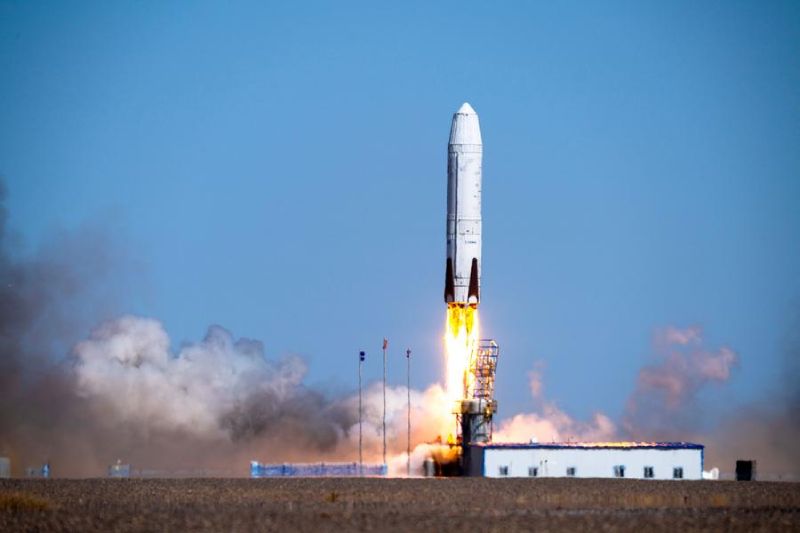
In 2027, Chinese rocket firm Deep Blue Aerospace wants to launch commercial suborbital flights, with a projected ticket price of roughly 1.5 million yuan (210,674 USD).
According to Deep Blue, the spacecraft will travel to a height of 100 kilometers during the roughly 12-minute suborbital trips, but it will not enter orbit.
According to the business, the manned spaceship can carry up to six passengers, has six panoramic windows, and is built to last more than 50 uses.
The spacecraft has a maximum diameter of 3.5 meters, a takeoff weight of 7.9 tonnes, and a height of about 4 meters. Deep Blue predicts that it will reach heights of 100 to 150 kilometers, offering a five-minute or longer zero-gravity experience.
During an e-commerce livestream on Thursday, the business pre-sold two tickets for its 2027 suborbital flights, each of which was priced at a reduced 1 million yuan.
Although the successful buyers have paid a 50,000 yuan deposit for each ticket, Deep Blue compels prospective clients to visit the business and sign contracts in person before they can make their final payment.
The company intends to finish dozens of tests on its manned spaceship and rocket combo in 2026 and put its Nebula-1 rocket through several recovery and reuse tests in 2025.
Deep Blue's first reusable launcher is Nebula-1, which runs on kerosene and oxygen. During its initial high-altitude vertical recovery flight test last month, it accomplished 10 of its 11 critical verification tasks; but, a final landing phase anomaly resulted in a crack in the rocket's body.
Despite these unsatisfactory outcomes, Deep Blue executive president Zhao Ya claims that the test has given the business useful information and experience to assist it pinpoint issues and shortcomings and enhance the rocket's dependability and performance.
According to Deep Blue, the company's choice to sell tickets three years in advance is the result of a thorough understanding of the hazards and difficulties associated with rocket technology. To guarantee that our rocket satisfies the greatest safety standards, the company is committed to thorough research and development, intensive testing, and performance improvement.